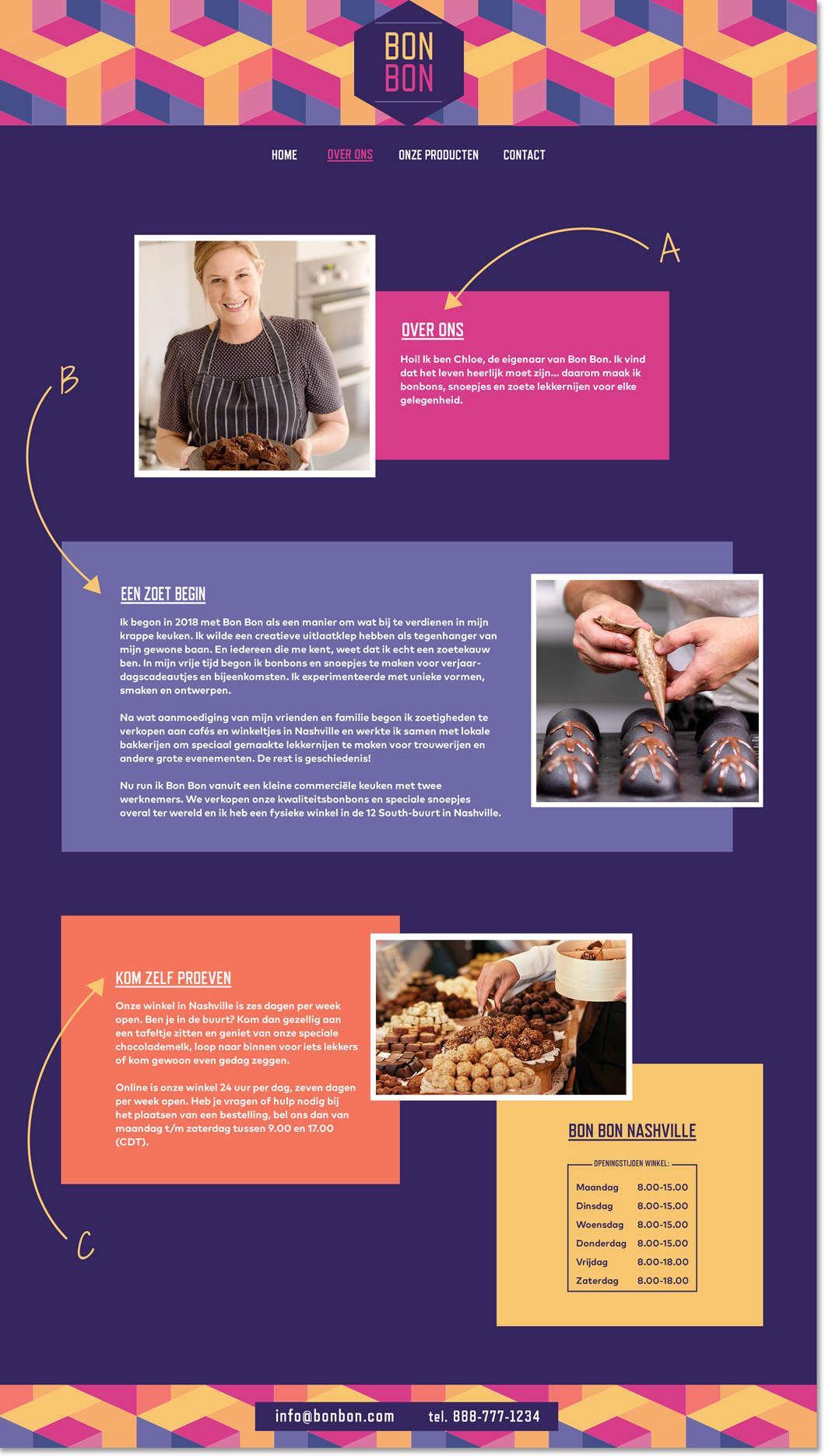A website is a great asset for any small business…especially now, when people are spending more time online. But as the world starts to reopen, don’t underestimate how important your digital presence is – starting with your ‘About Us’ page.
Whether customers are visiting your website to find updated hours, browse your online shop, or schedule an in-home appointment, a strong about page gives you an opportunity to stand out. Think of this as a tool to make a solid introduction to a new audience – you get to share your store and tell potential customers what makes you special.
Recently, we chatted with Vickie Carter, a Copy Lead at Vistaprint, and Mohamed Saidi, an Associate Digital Product Manager, to learn more about best practices for creating and optimizing an about page.
Vickie’s most important about page advice? “This is your opportunity to tell your story…but always remember the reader on the other end of it. Make sure that the story you’re telling is the story about who you are and what you can do for them.”
Here’s how to get started.
Think about what you want people to know.
When deciding what to say on your ‘About Us’ page, Vickie recommends thinking “about your elevator pitch. If you have a short period of time to tell somebody about who you are, what you do, and how you can solve a problem, that’s information that will be helpful to have high up on your About page.”
SOLO-PRENEUR TIP
“If you’re a solo entrepreneur, I recommend standing up and saying, ‘It’s me!’ Show off the fact that you’re proud of your business!”
The best ‘About Us’ pages talk about your origin story, your company’s history, and who you are. Vickie recommends including your values, what you believe in, and what informs your business – all of this information will help prospective customers figure out if they identify or connect with you.
Start with the basics.
Your about page should be a one-stop spot for key business information. In addition to your story and your ‘why,’ you should include basic info like where you’re located and how customers can contact you. Vickie notes that this kind of information is often overlooked, so make sure to include when you’re creating your page.
And when you’re creating your about page, it should actually be its own page. Instead of a blurb on your homepage or a sidebar somewhere else, Mohamed and Vickie both recommend keeping it separate – just include an easy-to-find button in your header, or a link in your drop-down menu.
WRITER’S BLOCK?
If you’re struggling to start writing, Vickie suggests having a conversation with someone about your business. Record it, so you can listen later – you’ll realize what information is most important, what people have questions about, and what potential customers want to know.
Do something feel-good.
There’s nothing better than making a difference and feeling good about it. Over the past few months, we’ve seen businesses of all sizes step in and help their local communities. Whether it’s a monetary donation to an area charity or hosting a free online class, a feel-good gesture goes a long way.
If you’re able to give back, do it – and find a cause that’s close to your heart. Share what you’re doing with your customers to inspire them to make a difference, and be the light in someone’s social feed. People will remember you for that.
Use an ‘about us’ template.
We just talked about the basics – here are three key sections every about page should contain.
- A. Open your page with a line (or two) of introduction.
- B. Tell your story. Have you been in business for fifteen days or fifteen years? Either way, tell potential customers why you started – and what inspires you.
- C. Include information that customers need to take the next step. Think about including a contact form, your shop’s location, business hours, or a phone together.
Now, see how it all comes together for Bon Bon – this sample about us page includes all these elements to tell a compelling, informative story.

HOW LONG SHOULD MY ABOUT PAGE BE?
Prioritize reading time over word count, Vickie says. “If your ‘About Us’ page goes beyond more than a few minutes of customer engagement, you’re creeping into too long. Be helpful and informative, but something they can get through in just a few minutes before they make a decision.”
Don’t forget to optimize.
An about section is a great way to help people find your website – do some SEO research to weave in relevant keywords to your story.
If you’re not familiar with search engine optimization (SEO), it’s a way to ensure that potential customers find your business when they’re using a tool like Google. So, if you’re an interior designer who works in Denver but also does remote consultations, you should do research inspired by these keywords and include them on your about page.
An easy way to add keywords to your about page (or any page!) is with bullet points. Vickie also points out that bullets are a great way to break up large sections of copy and make for easy reading. Weave in bulleted sections throughout the page that do double-duty as keywords – like a list of the Denver neighborhoods or surrounding cities you work in or the design styles you specialize in.
About page action items
1
Introduce yourself.
2
Tell people where and how to find you.
3
Include contact information.
4
Take a templated approach.
5
Take a templated approach.
6
Be yourself.



